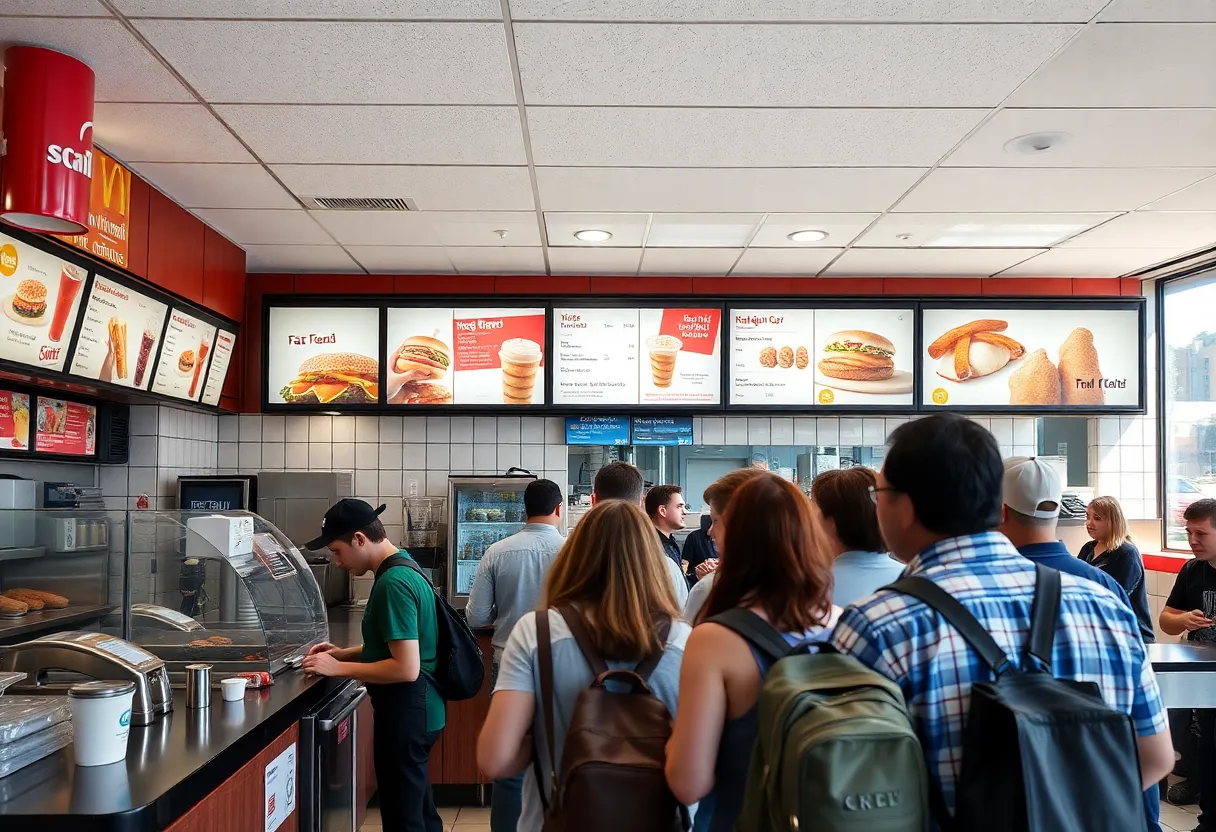News Summary
California has increased the minimum wage for fast-food workers to $20 per hour, the highest in the U.S. This change has led to price hikes at major chains like McDonald’s and Subway, while also resulting in job losses in the sector. Fast-food owners are adjusting operations and pricing to cope, with some reporting improved employee retention while facing declining sales. The Fast Food Council will have the power to adjust wages according to inflation, further complicating the situation as employees seek higher wages amid rising living costs.
California has officially raised the minimum wage for fast-food employees to $20 per hour as of April 2024, solidifying its position as having the highest fast-food worker pay in the nation. This substantial increment from a previous wage of $16 has prompted widespread changes across the industry, with many fast-food chains adjusting their pricing strategies and operational models to cope with the new law, Assembly Bill 1228.
In response to the wage increase, major fast-food franchises such as McDonald’s, Subway, Chipotle, and Burger King have raised their menu prices, aiming to maintain profit margins amid rising labor costs. However, the California Restaurant Association and other trade groups report significant repercussions, claiming that this hike has contributed to a loss of over 22,600 jobs in the fast-food sector, representing a 3.1% decline in employment at limited-service restaurants since the law took effect.
Mike Keung, who owns seven McDonald’s franchises in Los Angeles County, has noticed a direct impact on his business operations. He reported a 16% reduction in restaurant operating hours and a decrease in full-time employees from 413 to 384—approximately a 10% cut. Although he has not conducted any layoffs, hiring rates have plummeted by more than 50%, switching from hiring 317 workers in the lead-up to the wage increase to just 140 thereafter.
Despite the challenges, some positive trends have emerged. The turnover rate for employees in Keung’s restaurants has significantly decreased from 85% to 40% due to improved wages and benefits. Additionally, he is witnessing a notable 40% increase in job applications in the wake of the wage rise, with about 50 new applicants arriving daily. The caliber of applicants has reportedly improved, attracting individuals with diverse professional backgrounds, including educators and workers from other sectors seeking additional income opportunities.
Nevertheless, the overall performance of fast-food businesses remains tenuous. Keung has experienced a 16% decline in gross sales and a drop in customer visits compared to the previous year, primarily because diners are increasingly apprehensive about potential menu price increases associated with the minimum wage hike. The average expenditure per customer has also seen a significant 10% reduction, further exacerbating revenue challenges for franchise owners.
To mitigate the impact of higher wages, restaurant owners have been trying various strategies. For instance, value meal promotions have shown some effectiveness, although they have not proven profitable enough to fully counterbalance the financial repercussions of AB 1228. Due to tightening budgets, many franchise owners, including Keung, have been compelled to scale back on community support initiatives and cut employee benefits.
The landscape of California’s fast-food workforce has also changed dramatically; the current compensation for these workers exceeds that of other minimum wage earners within the state, which has enhanced financial stability for some employees but resulted in reduced hours for many others. As the economic situation unfolds, California’s newly implemented Fast Food Council holds the authority to adjust the minimum wage annually in tandem with inflation or by 3.5%, creating further discourse among stakeholders.
Concurrently, employees are advocating for an increase in the minimum wage to $20.70 to ensure competitive salary levels in light of the rising cost of living. However, restaurant owners have expressed their concerns against further wage increases, stressing that the operational struggles resulting from the existing wage law are already severe.
As the industry navigates this tumultuous transition, it remains to be seen how players within California’s fast-food sector will adapt to these challenges and what implications this will have for both employment figures and the overall economic climate moving forward.
Deeper Dive: News & Info About This Topic
- CNN: California Fast Food Wage Hike
- Wikipedia: Minimum wage
- KTLA: McDonald’s Owner Discusses Wage Increase Impact
- Google Search: California minimum wage
- SMDP: Minimum Wage Impact on Business Owners
- Google Scholar: California minimum wage impact
- Reuters: California Fast Food Minimum Wage Increase
- Encyclopedia Britannica: Fast food minimum wage
- The Guardian: California Fast Food Minimum Wage
- Google News: California fast food wage hike

Author: STAFF HERE COSTA MESA WRITER
The COSTA MESA STAFF WRITER represents the experienced team at HERECostaMesa.com, your go-to source for actionable local news and information in Costa Mesa, Orange County, and beyond. Specializing in "news you can use," we cover essential topics like product reviews for personal and business needs, local business directories, politics, real estate trends, neighborhood insights, and state news affecting the area—with deep expertise drawn from years of dedicated reporting and strong community input, including local press releases and business updates. We deliver top reporting on high-value events such as the OC Fair, Concerts in the Park, and Fish Fry. Our coverage extends to key organizations like the Costa Mesa Chamber of Commerce and Boys & Girls Clubs of Central Orange Coast, plus leading businesses in retail, fashion, and technology that power the local economy such as Vans, Experian, and South Coast Plaza. As part of the broader HERE network, including HEREAnaheim.com, HEREBeverlyHills.com, HERECoronado.com, HEREHollywood.com, HEREHuntingtonBeach.com, HERELongBeach.com, HERELosAngeles.com, HEREMissionViejo.com, HERESanDiego.com, and HERESantaAna.com, we provide comprehensive, credible insights into California's dynamic landscape.


